The Marata Sardars were serving under the Muslim sultans in those days. The Bhamini Kingdom had broken up into Ahmednagar, Bijapur, Golkonda, Bidar and Berar. These five states acted as a buffer between the Mughal empire and the kingdom of Vijayanagar. Lakhuji Jadav Rao was serving in the Nizam Shahi administration. He was known for his valor.
Similar ‘Sardars’ used to serve under the Muslims. They had their own armies and had obtained high ranks and positions, according to their abilities. However, they competed with each other when it came to loyally serving the Sultans and in the process, they built enmity amongst themselves. The heroic Marathas were thus prospering negatively.
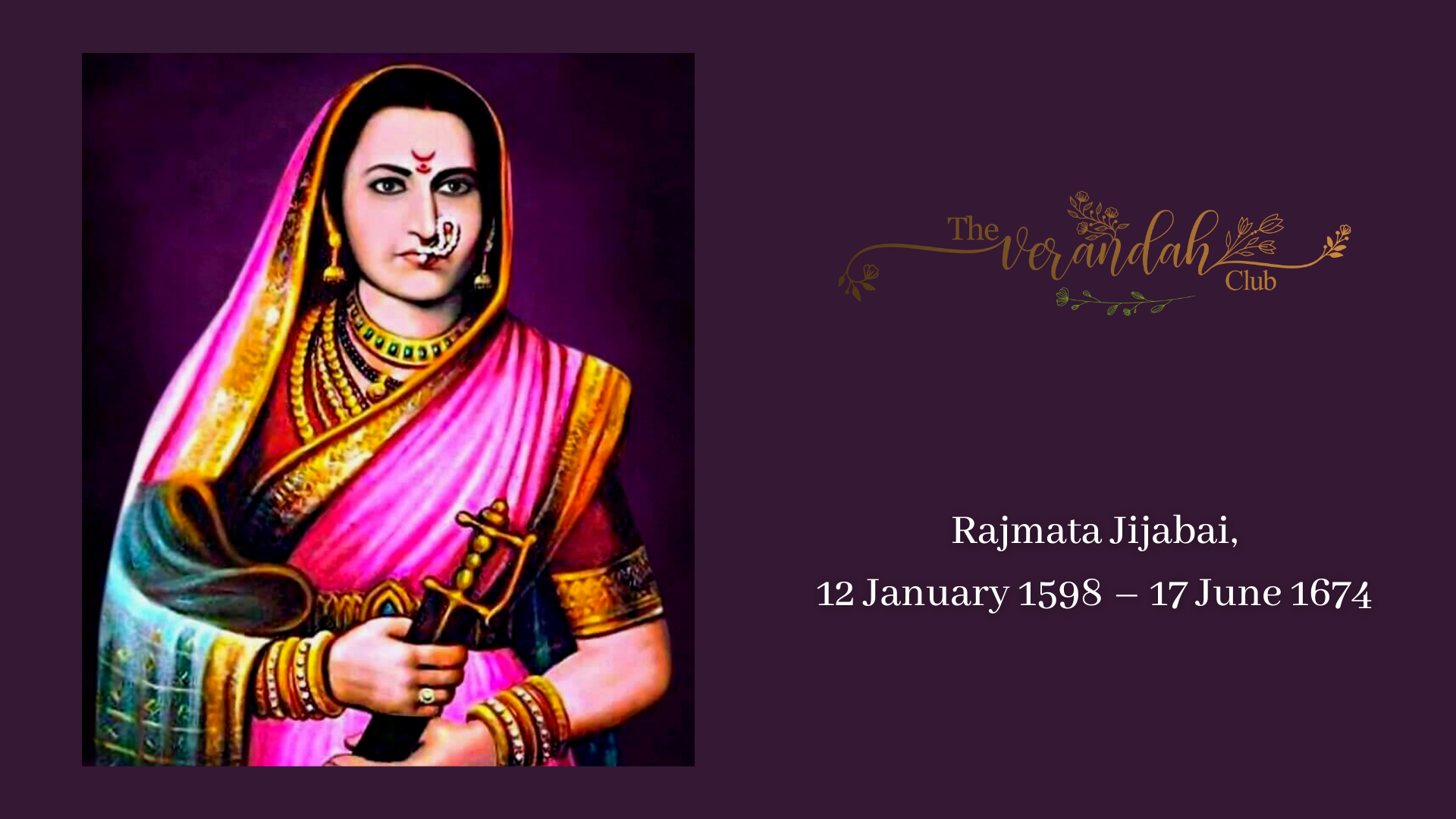
Jija Bai happened to be the beautiful daughter of Malasa Bai and Lakhuji Jadav Rao. She was brought up lovingly by her indulgent parents. Little Jija Bai was keenly observing the pathetic condition of the Maratha nobility during her growing-up years. It was the day of Rang Panjami, Jija Bai was playing with colored water in her house, at a time when numerous Maratha officers had assembled. The officers included Maloji Shiledar and his little son Shahaji.
Jija poured some color water on the handsome Shahaji, and he reciprocated by doing the same. Jadav Rao immediately drew the little boy and said light-heartedly, “Don’t Jija and Shahaji make a fine couple?” This thrilled Maloji and he declared that Jija would become his daughter-in-law. But, Jadav Rao retorted by stating that, “I just spoke in jest and I never meant a ‘marriage’. My dear daughter can never become the daughter-in-law of an ordinary Shiledar.”
This provocation made Maloji stand up. He gave up, and he declared that these words were indeed a challenge and that he wished to quit from the services of Jadav Rao. Maloji did not think of the future before storming out of the residence of Sardar Jadav Rao. He became worried later and his mind had become a battlefield of clashing ideas. The insult had shattered his self-esteem, and this made him sleep late.
It was one of those days, and the brave Maloji had a dream. A deity of great beauty and splendor came in front of him and told him, “Dear Maloji, do not worry. A great epoch-making hero will be born in your clan and he will make your line immortal. Do not get confused, for I’m your protecting deity.”
Maloji got energized thereafter, and he went to his fields along with his brother Vithoji. It was well past midnight, and the restless Maloji began to use a spade in order to dig in his land. He dug with great force and the spade stuck something metallic. The curious Maloji went further and was happy to discover a pot full of gold coins. Tears of Joy welled up in his eyes and he thanked the deity who had appeared in his dreams. She had held the conch, the wheel, the lotus and the Trishul in her hands, and Maloji was grateful to her. He offered his prayers and began to remove the pot of gold. Several pots followed each other and a joyous Maloji woke up Vithoji in order to carry the seven pots of gold into the dwelling.
Maloji was a visionary, and he began to think of his future. He purchased one thousand horses from his friend, Sheshova. The rich man raised an army and decided to be of use to society. He understood that wealth without charity could not be respected. He dug wells, built lodges for travelers, while also renovating temples and mutts. The Vellore Grishneshwar temple was renovated by him and he also constructed the large tank at Shingnapur. Eventually, the army of Maloji began to number three thousand horses and soldiers. He began to attack the Nizam Shashis. The rulers understood the might of Maloji and he was conferred with the title, “Man Subedar Raje”. He began to command 12,000 horses.
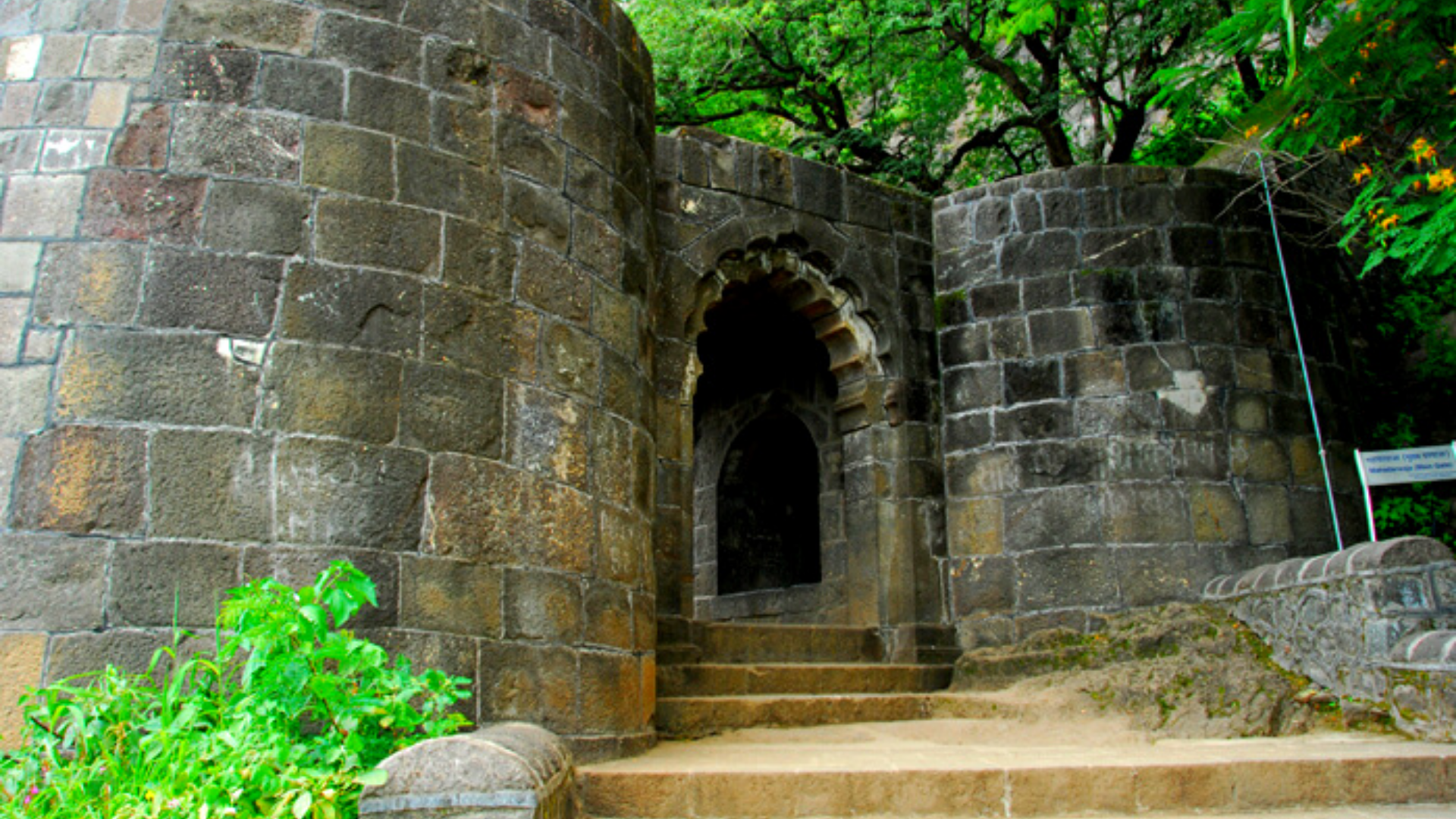
The Shivneri fortress and the villages around became his fief. Eventually the Sultan compelled Sardar Jadav Rao to give his daughter Jijabai to Maloji’s son Shahaji. When the wedding took place, but nevertheless, Jadav Rao continued to seethe with anger. On the passing away of Maloji, his son Shahaji Raje took over the reins of the administration while continuing to serve under the Nizam Shahi.
The courageous and diplomatic Shahaji was a seasoned politician com warrior. But he had to face the hatred of his father-in-law. Time passed by, and Jadav Rao joined the Mughals with the idea of seeking revenge on his son-in-law. Young Jijabai was upset to see her immediate families trying to seek revenge on each other while also serving under Muslims.
She was a model housewife and was known for her calm approach. Shahji understood his predicament, but he was helpless.
The Mughal emperor Shah Jahan invaded the Deccan and Shahaji had to protect the defenses of the Nizam Shahi Kingdom. In the midst of all this, a plot was growing against Shahaji in the Nizam Shahi Kingdom and he had to act in a wise manner in order to save himself and his family. Jijabai was four months pregnant and was unable to move about quickly. She requested her husband to move on and this led to her getting caught in the hands of her father, Jadav Rao. The father had invaded on behalf of the Mughals, and he offered to take her in a palanquin to his house in Sindkhed.
The brave Jija resisted and told her father that she would never come to his house and suggested that she be taken away by him as his captive. The father became sleaze, speechless, and he rode away with his army.
Shahaji’s soldiers came and took her to their fort at Shivneri. Jijabai was the very embodiment of self respect and courage. She was pained to see the holy places of the Hindus in utter ruins. The conditions seen by her made her not care for comforts and luxury. She would sit in front of the idol of Jagadambe and request her to create a powerful Maratha emperor who would have his own flag and an army.
Jijabai was indignant with the Maratha, Jagirdar and Sardars. She understood that these people lack self respect. She wanted a hero like Rama to organize and lead the sturdy Marathas against the Muslims. She used to climb forts and hills during the period when she was expecting the baby. Jijabai wished to fight with tigers.
Meanwhile, Jadav Rao returned to serve the Nizam Shahi, but he was beheaded along with his sons while he bent down to offer his obeisance.
The family of Jijabai was extinguished in one stroke. Her mother and sisters in law performed Sati.
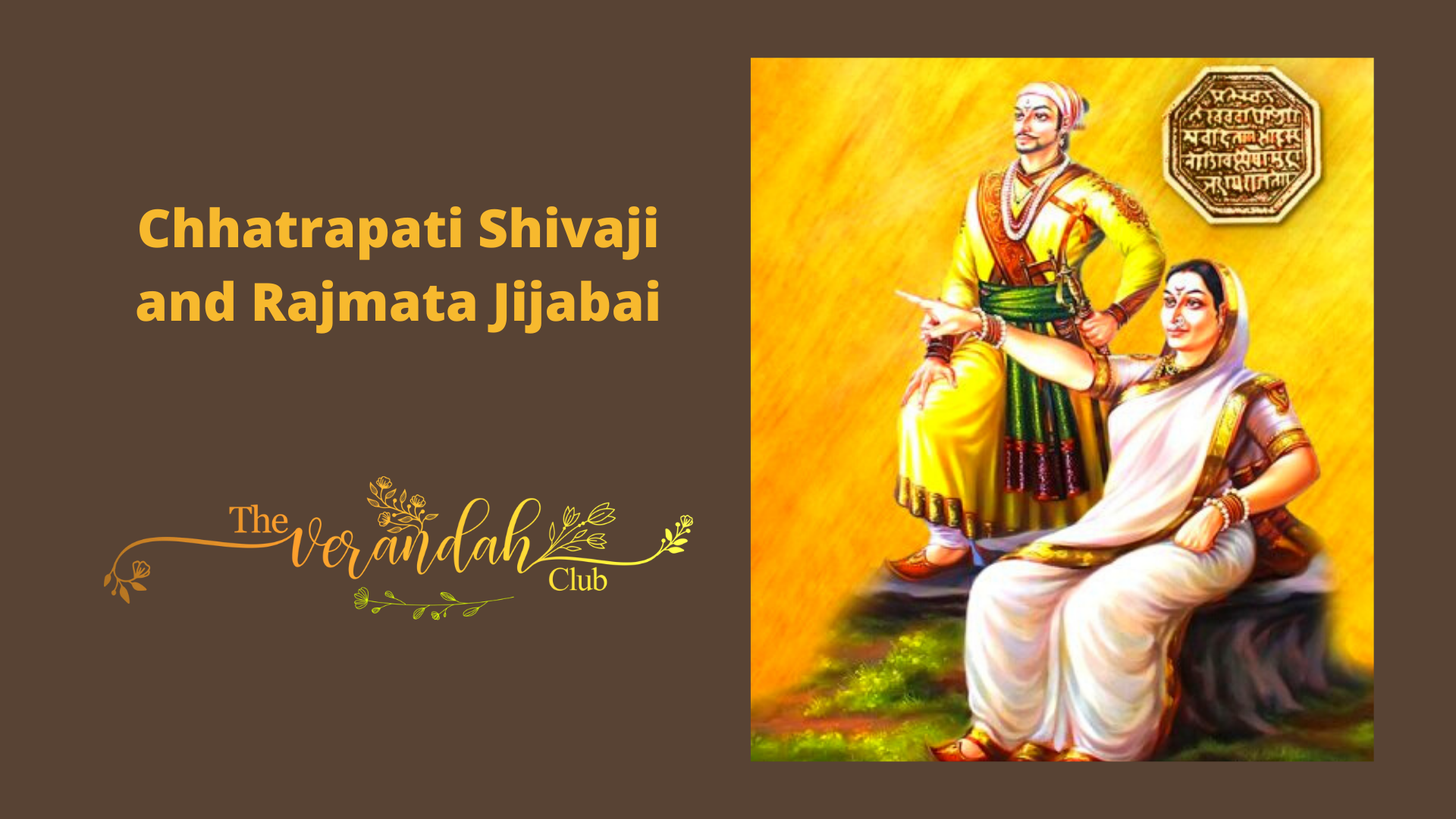
One day Jijabai had labor pains, and it was a Friday (19th Feb, 1630). Jijabai gave birth to a son at Shivneri (fort). On the twelfth day after childbirth, Jijabai named the son as Shivaji.
The pious Jijabai wanted Shivaji to become the architect of liberty. She sent him to Dadaji Kondadev for his education. Jijabai wanted her son to have a heart of steel, so that he would be able to make her country free from the clutches of Muslims. Meanwhile, Shahaji had sent Jijabai and Shivaji to Pune along with Dadaji Kondadev. Pune had been destroyed by the Nizam Shahi and the Mughals. Not a single shrine was left standing. Pune was rebuilt under the guidance of Dadaji Kondadev.
Dadaji Kondadev was an honest man, and he protected the common citizen Shivaji, learned a lot about the last glory of India from Dadaji Kondadev. Temples were built and Jijabai looked into Shivaji’s well being personally. The Maratha boys were poor, but loyal. Therefore, they became intimate companions of Shivaji. He played with them and the game of building forts, and laying seeds for them was popular with him. His mother’s guidance made Shivaji practice justice.
Even as a boy, he issued orders for cutting off the hands of the sinner who had slaughtered the sacred cow. Shivaji sentenced to death a man who had insulted a woman.
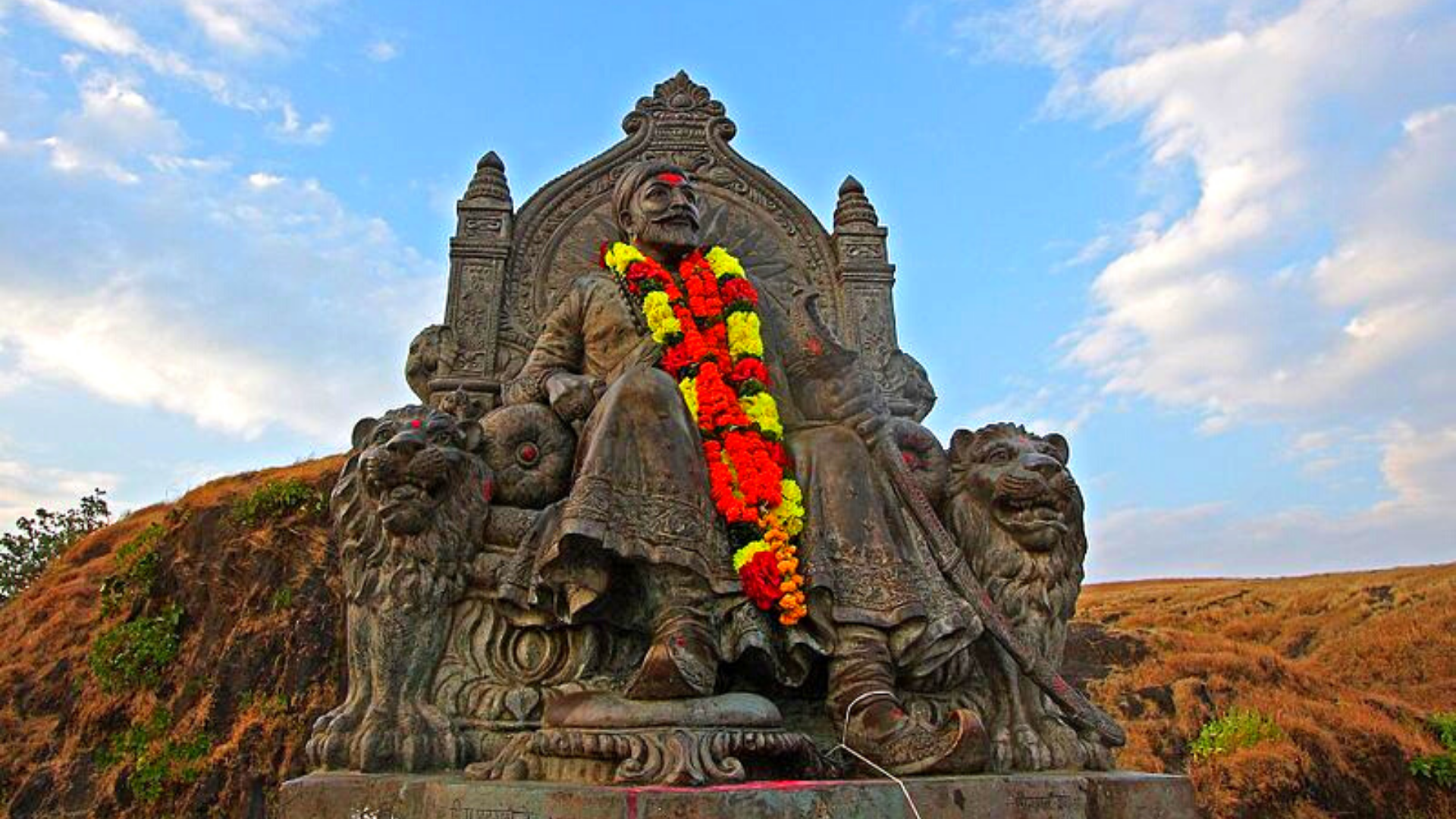
Pune acquired a new look under Jijabai and she personally settled disputes while also meeting out justice, Shivaji learned much by observing and also discussing with Jijabai. He exchanged views connected with politics with his mother, while also watching the good work of Dadaji Kondadev.
Jijabai was overwhelmed by troubles. Shahaji Raje had married Tukabai, and he hardly spent any time with Jijabai and Shivaji. Shahaji was valiant, but the love for liberty had dried up in him. The farsighted Jijabai ensured that Shivaji was not affected by the stances taken by his father. She shaped her son like the great Shakunthala who had taught her son Bharatha. Just as how Sita brought up Lava and Kusha, Jijabai brought up Shivaji. Jijabai completed the difficult task of modeling the future independent sovereign of the Maratha state in the shade of her motherly care and love.
The far-sighted Jijabai brought back the brave soldier Nimbalkar back from Islam. She ensured that the orthodoxy did not stand in the way. Shivaji grew up and his fight for freedom began. He was only sixteen while capturing Thorankad (fort). Jijabai could not contain her joy. Shivaji could not take any important decision without consulting his mother.
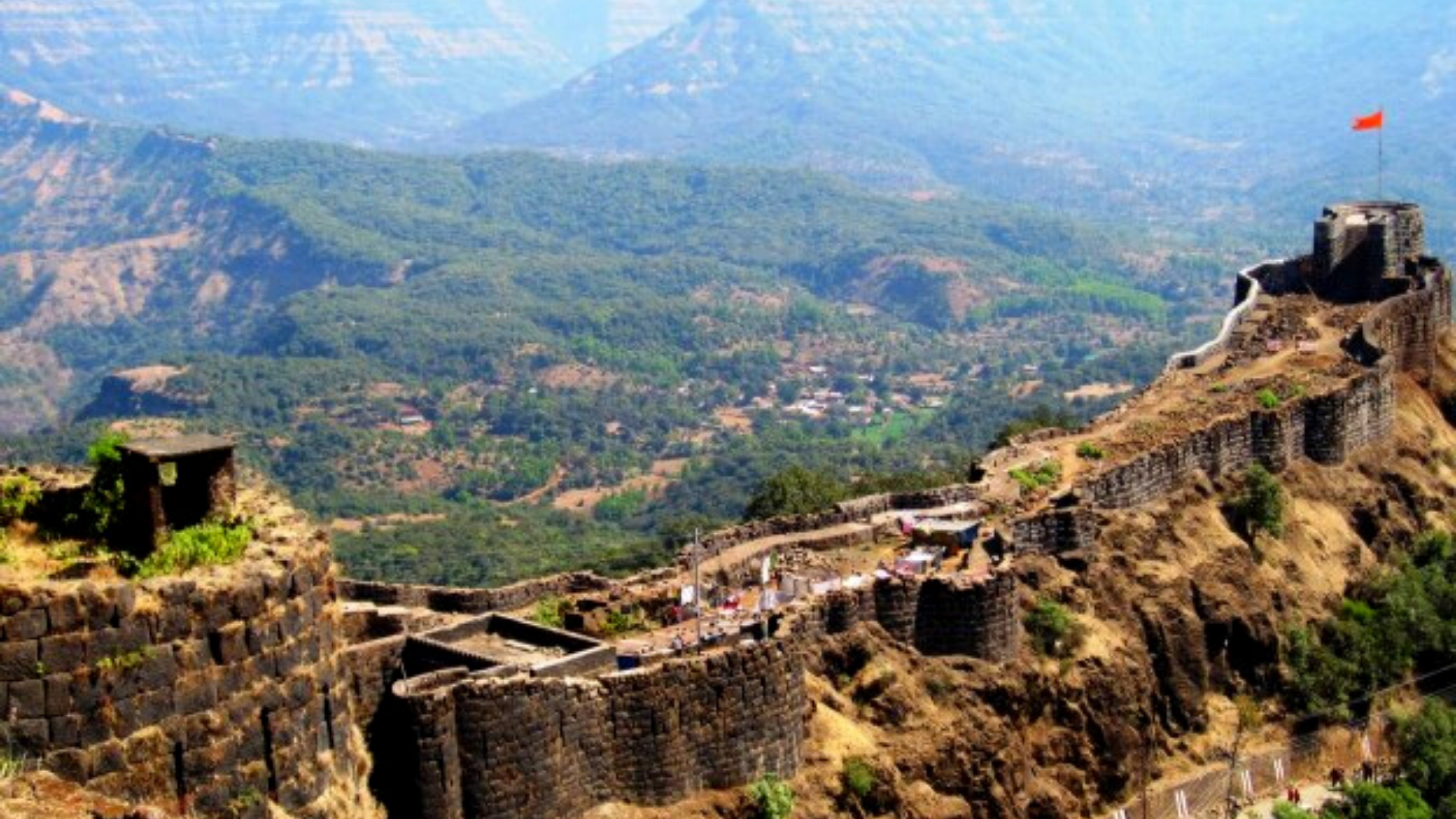
The sultan of Bijapur had imprisoned Shahaji Raje, but the clever Shivaji got him released. Shivaji had to extinguish the giant-like Afzal Khan and the blessings of Jijabai made him succeed. She was a source of inspiration to the companions of Shivaji. Jijabai treated each one of them affectionately and would get upset when the brave soldiers fell in battle.
Shivaji had surrendered the Sinhagad fort to the Muslims, and Jijabai wanted to get it back. She therefore sent Thanaji to win back Simhagadh. Simhagadh was under the protection of Udayabhanu Rathod. Thanaji claimed up the fortress at the dead of the night and fought a fierce duel with Udayabhanu. Thanaji has won the battle but met himself with death. The Bhagava Jhanda(The saffron flag of Shivaji) fluttered over the Simhagadh fort thereafter. Jijabai, though was glad to see the fluttering flag over the Simhagadh fort. The news of Thanaji’s death had broken her down.
As Shivaji grew older, the dangers had grown altogether. Shivaji had to go to Agra to meet the Mughal king Aurangazeb. Jijabai was worried about sending her dear son to the jaws of death. What happened in Agra had shaken Jijabai. Both Shahaji and Shivaji were imprisoned by Aurangazeb. Until Shivaji’s return, the reins of the state were entrusted to the hands of Jijabai and she did her best in altering the country for her son.
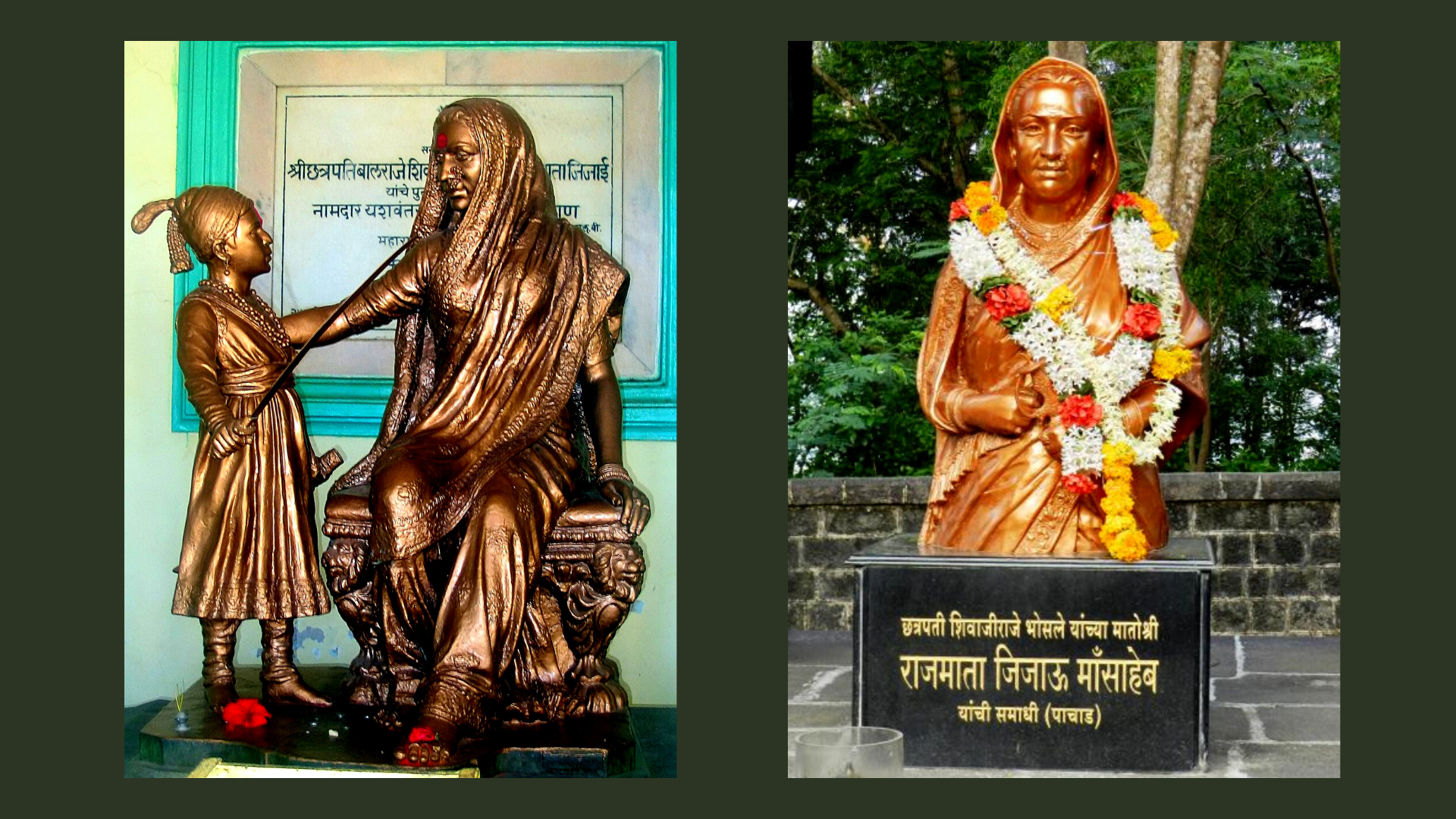
Unfortunately Shahaji died in a horse riding accident during his hunt. Jijabai was shaken by the death of Shahaji, that she decided to perform Sati(burning herself on the pyre). But on Shivaji’s request, she withdrew her decision. Shivaji knew that the fate of the Marathas would lose the source of inspiration in the absence of Jijabai.
The Swaraj dreams of Jijabai became real soon after. On the thirteenth day of the month of Jyestha, she blessed her son into ascending the golden throne. Even in the midst of rejoicing on the coronation, she remembered the sacrifice of Thanaji and the other brave warriors of Marathas.
The fate was cruel. On the twelfth day, after the coronation of Shivaji, the noble Rajmatha Jijabai passed away. To this day, Raigad has remained a holy place, installed with the statue of Shivaji and Jijabai. One would draw inspiration at the very sight of Raigad Fort and on listening to the inspiring story of Jijabai.
For patriots interested in aquiriung gold-pendant of Chatrapati Shivaji can contact Rajesh Govindarajulu (Chief Curator, The Verandah Club) - 92444 03188
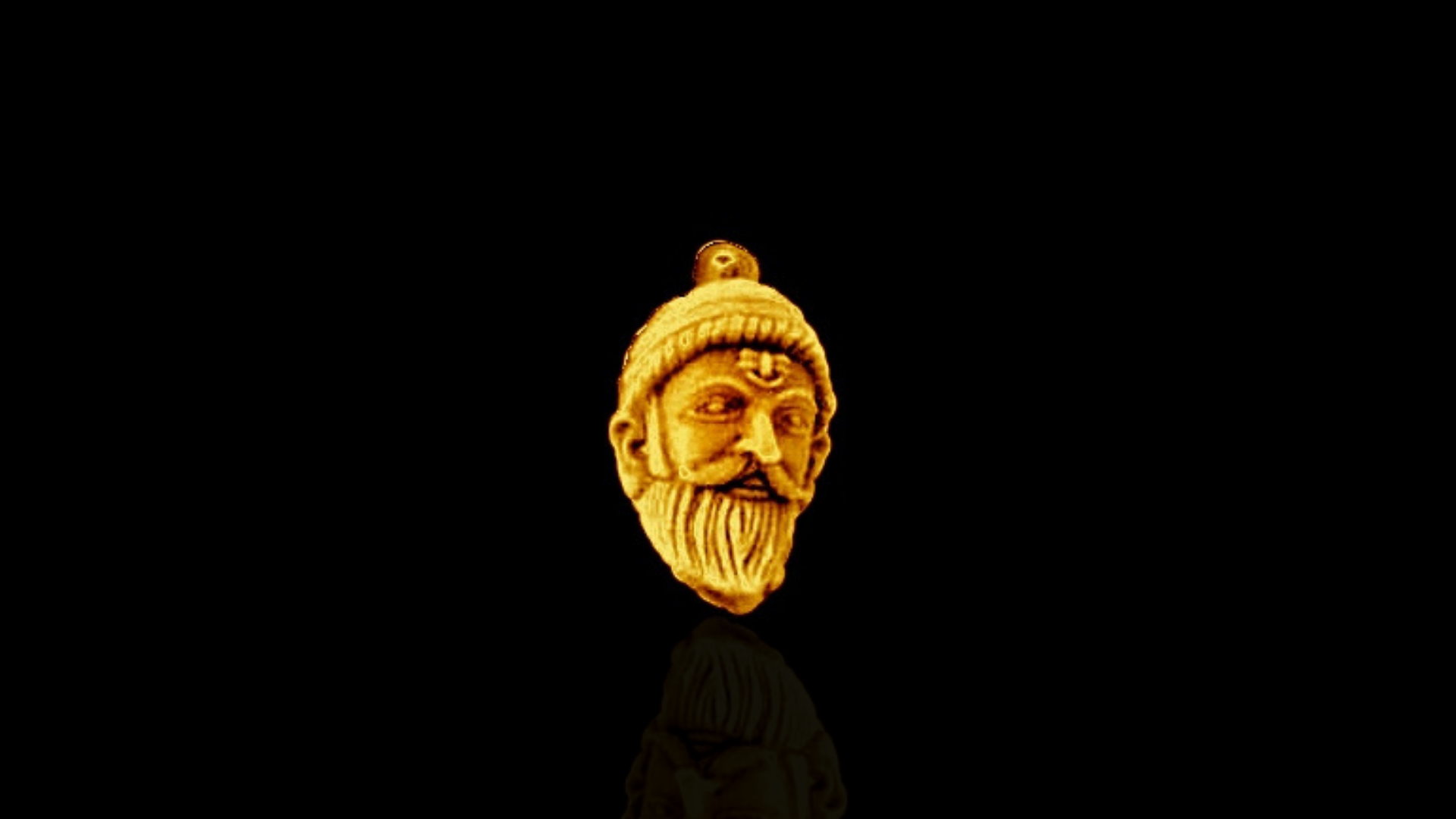
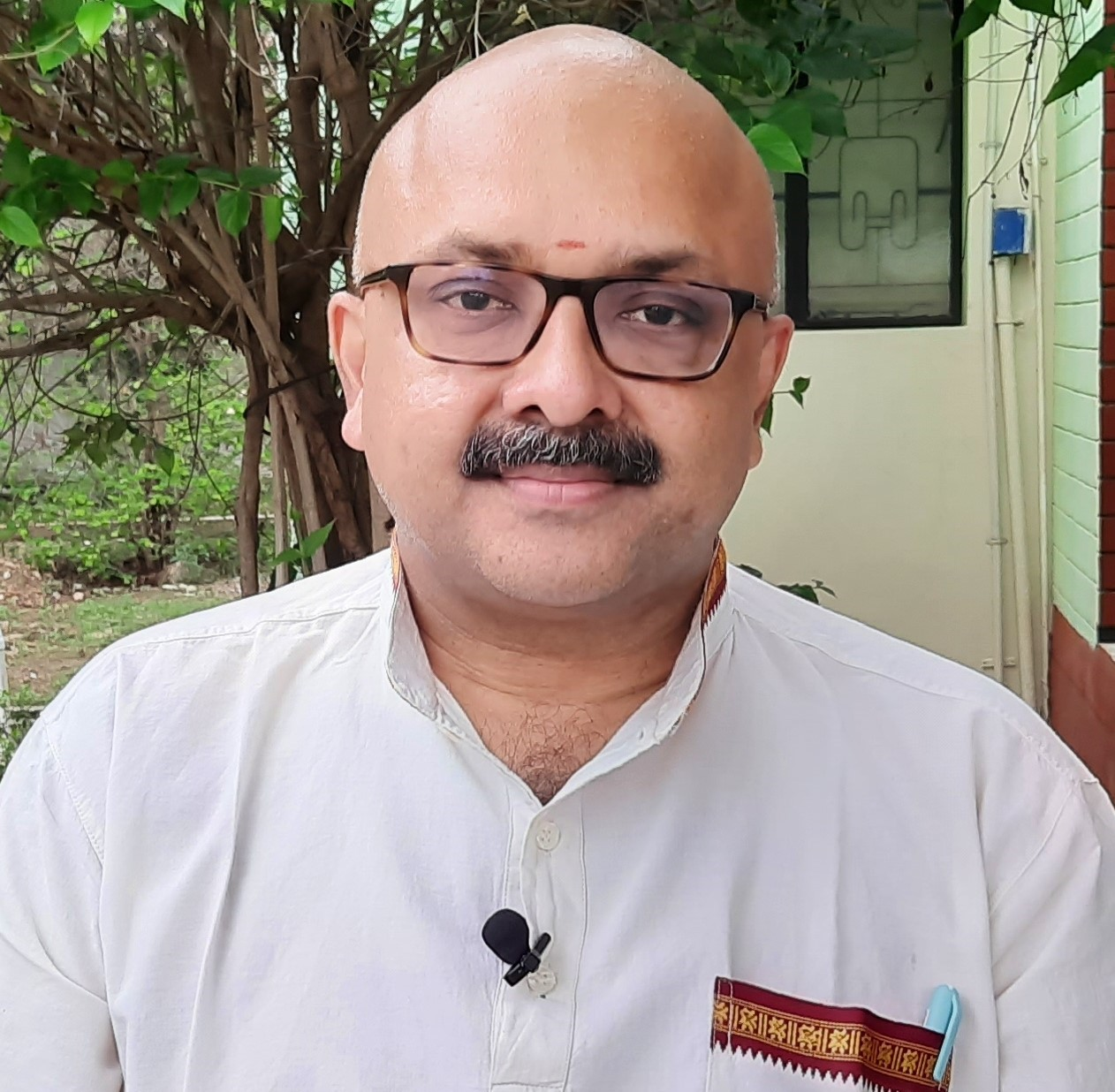 Mr. Rajesh Govindarajulu is one of the founding members of the Verandah Club Pvt. Ltd. He is a leading columnist, historian, jeweler, entrepreneur, and a heritage enthusiast who is earnestly working to revive the past in the light of the present. Experiential learning about the history of Coimbatore is his main course of interest and he is also a panel member of many colleges in the city.
Mr. Rajesh Govindarajulu is one of the founding members of the Verandah Club Pvt. Ltd. He is a leading columnist, historian, jeweler, entrepreneur, and a heritage enthusiast who is earnestly working to revive the past in the light of the present. Experiential learning about the history of Coimbatore is his main course of interest and he is also a panel member of many colleges in the city.
NEXT ARTICLE

All authors who write about the Mahabharata have to read its unabridged version. The most popular unabridged translation used to be the one by Kisari...

In the annals of Bharat Varsh, amidst the swirling mists of time and legacy, emerges the figure of Chhatrapati Shivaji Maharaj, a warrior whose name e...